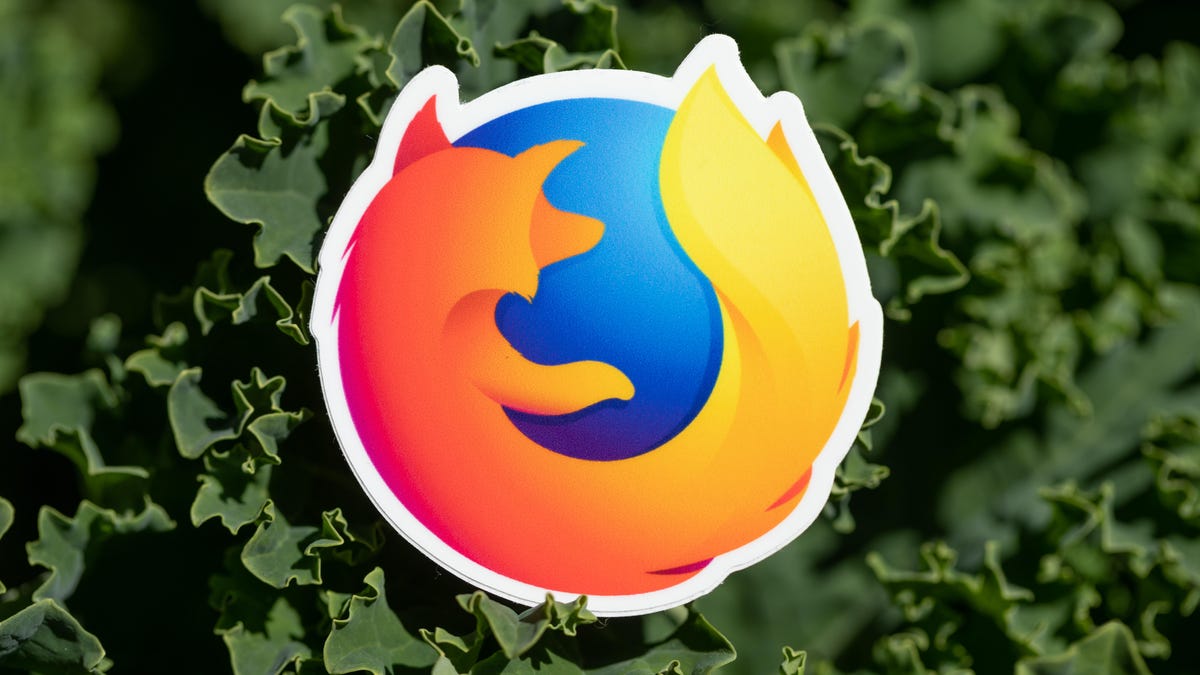Firefox Advance tries leading you to new places you'll like on the web
Remember the excitement of discovering the web?

A Mozilla Firefox sticker
Mozilla began testing a Firefox extension Tuesday that shows you its best guesses for what you want to see on the web.
So far it's an experiment distributed through Mozilla's Test Pilot program to let interested people try new features and help Mozilla refine them before release. But Advance is a serious part of how Mozilla hopes to make Firefox more competitive again -- in this case by using it to keep you informed, diverted, educated and entertained.
With Advance, Mozilla hopes to get you out of your internet rut -- and embrace Firefox even though Google's Chrome dominates web usage today.
"We're taking you back to our Firefox roots and the experience that started everyone surfing the web. That time when the World Wide Web was uncharted territory and we could freely discover new topics and ideas online. The Internet was a different place," Mozilla said in a blog post.
Mozilla already offers a separate, broader recommendation channel on the browser's new-tab page. These websites come from Mozilla's Pocket service for bookmarking websites for future reference. The nonprofit also is testing ads using the Pocket-based recommendation service there.
Mozilla is testing Firefox Advance, an extension that offers other websites it thinks you might want to visit based on the one you're already looking at.
Advance, though, is more focused. It presents a sidebar of suggested websites based on the website you've already got loaded. The web extension uses machine-learning content recommendation technology from startup Laserlike, and there's no plan to make money off the feature, Mozilla said.
Content discovery is a thorny problem, though. Countless services, from Netflix to app stores and Spotify to social media, try to suggest new material to keep you engaged. But although it's easy to recommend a new album from a band you listen to already, it's much harder to suggest something that'll broaden your horizons without alienating or annoying you. And even seemingly safe recommendations well aligned with your current tastes run the risk of being stale or repetitive.
Mozilla announced the general idea way back in 2016. Web browsers have a back button so you can navigate back to where you came from but how about a forward button to take you where you want to go?
Advance shares your browsing history
Those with privacy concerns should note that Firefox will send browser history data -- potentially very personal information -- to Laserlike. Mozilla is trying to to be clear about that fact and give people some control over the situation, though, and part of the point of the experiment is to tackle the data-sharing issue head-on.
"We have also included controls so that participants can pause the experiment, see what browser history Laserlike has about them, or request deletion of that information," Mozilla said. "We're interested in seeing how our users respond to their browsers having a more active role in helping them explore the web, and we'll experiment with different methods of providing these recommendations if we see enough interest."
Where do the recommendations come from? Laserlike builds its own catalog of websites.
"We try to crawl as much of the internet as possible, not limited to any subset," said Srinivasan Venkatachary, Laserlike's chief technology officer and co-founder. "We then generate machine learning models for all the content we crawl, and use these models to generate appropriate recommendations."

